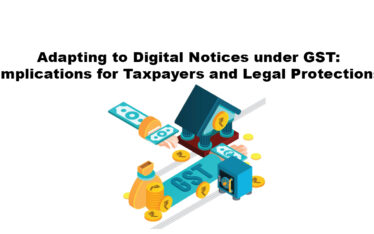Background
‘A Penny Saved is a Penny Earned’ means that it is as useful to save money that you already have as it is to earn more. And here we are talking about saving nothing less than millions as dual taxation can be taxing on the hard-earned income of NRI’s and organisations. Post globalization, cross-border transactions have increased exponentially which has given rise to issues related to double taxation of income pertaining to cross-border transactions. In such cases, one (‘Company / Individual’) can be taxed in both the countries, in home country (‘residence country’) for his total / global income and in foreign country (‘source country’) for the income derived from source country.
To address this issue many countries have signed Double Tax Avoidance Agreements (‘DTAA’) with the objective of allocating taxation rights between the home country and source country whereby the residence country allows a deduction of taxes paid in the source country from the total tax liability in the residence country. This concept is called as Foreign Tax Credit (‘FTC’).
Synopsis
Section 90 of the Income Tax Act, 1961 (‘the act’) covers FTC provisions where India have entered into DTAA with the source country and section 91 of the act covers FTC provisions where India do not have DTAA with the source country. Rules for claiming FTC have been notified under Rule 128 of Income Tax Rules. Following are the salient features of FTC;
- FTC shall mean;
- In case of DTAA countries “taxes that are covered under the said agreement”.
- Other countries “the tax payable under the law in force in that country in the nature of income-tax as referred to explanation (iv) to section 91”.
- The allowable FTC shall be the aggregate of the amounts of credit computed separately for each source of income arising from a source country.
Income Tax Payable under Allowable FTC Remarks Normal provisions Lower of the tax payable in India under the act on such income and the foreign tax paid on such income Excess foreign tax paid, if any, shall be ignored for FTC purpose. MAT provisions Same as above FTC adjusted against MAT cannot exceed tax credit available under normal provisions i.e. the excess shall be ignored while computing the amount of credit under section 115JAA / 115JD. - FTC shall be allowed in the year in which the income corresponding to such tax is offered to tax in India. In case income is offered to tax in more than one year, FTC shall be allowed across those years in the same proportion in which income is offered to tax in India.
- FTC can be claimed against tax, surcharge and cess. It cannot be availed against interest, fees and penalties payable under the act.
- FTC is not available in case foreign tax or part thereof is disputed by the assessee in any manner. However, it is available in the year it is offered to tax or assessed to tax if;
- the assessee within six months from the end of the month in which the dispute is finally settled, furnishes evidence of settlement of dispute and the liability for payment of such foreign tax has been discharged by assessee and
- furnishes an undertaking that no refund in respect of such amount directly or indirectly been claimed or shall be claimed.
- For currency conversion, telegraphic transfer buying rate on the last day of the month immediately preceding the month in which such tax paid or deducted shall be used.
Process to claim FTC
- Assessee is required to file Form 67 electronically on Income Tax Portal.
- Certificate or statement specifying the nature of income and the amount of tax deducted therefrom or paid by the assessee;
- . from the tax authority of source country or
- ii. from the person responsible for deduction of such tax or
- iii. signed by the assessee supported with an acknowledgement for payment of such tax by the assessee and a proof of deduction.
is required to be attached along with Form 67.
- Form 67 is required to be filed on or before the due date of furnishing income tax return as specified under section 139(1) i.e. original ITR.
Summary
Therefore, it is important for Indian Tax Residents having foreign source of income to carefully analyse the same and collate necessary documents related to foreign income. The law relating to foreign tax credit has evolved over a period and has become much simpler to claim the credit today.





